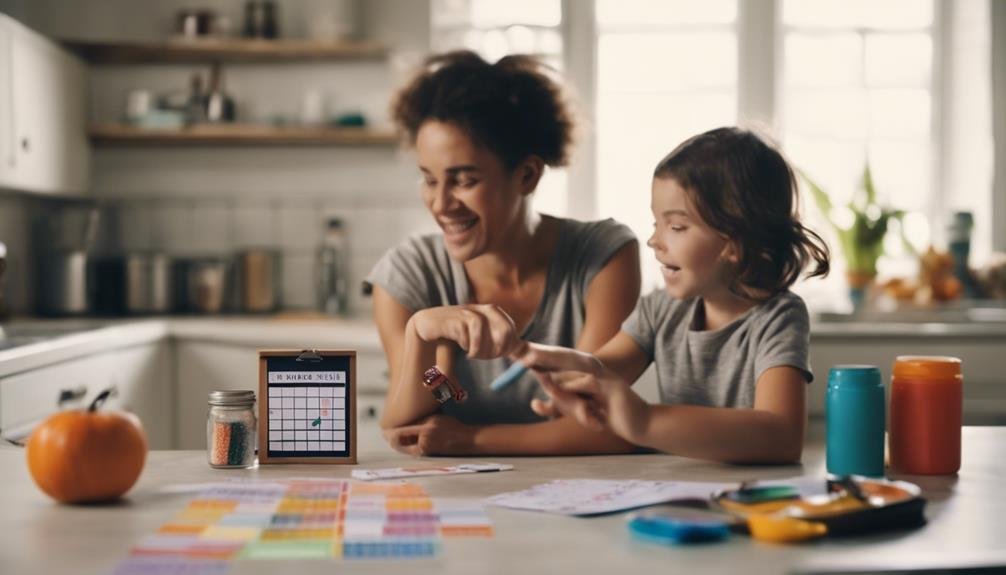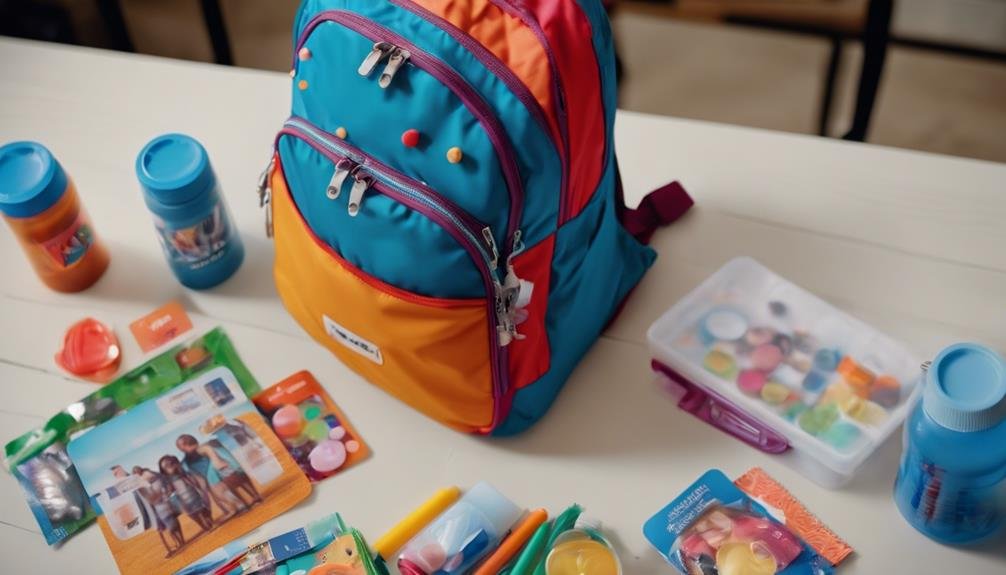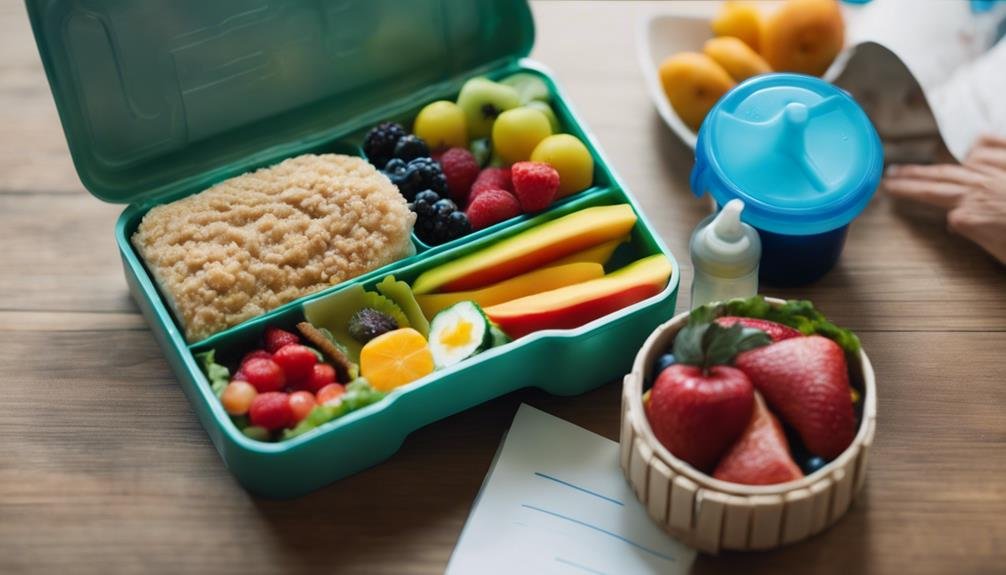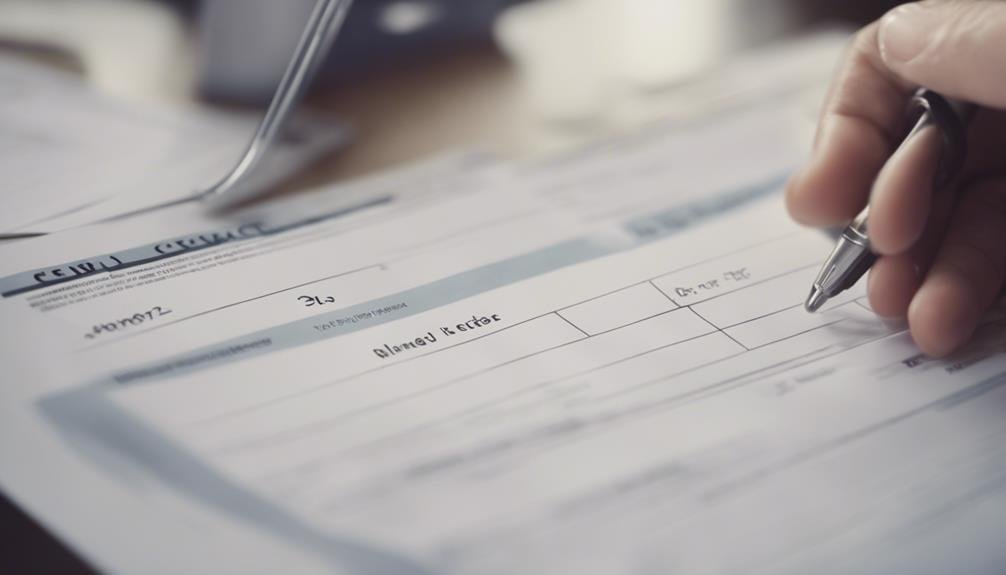"Cherishing Little Steps - A Haven for Baby and Family Journeys"
Preparing for the First Day of Kindergarten: A Parent's Checklist
You may feel overwhelmed by the idea of getting your child ready for the first day of kindergarten, but with a well-thought-out checklist, you can tackle this milestone step by step.
From establishing a morning routine to packing a healthy lunch, there are numerous aspects to take into account. However, one important element often overlooked is the emotional readiness of both you and your child.
Understanding how to navigate this change successfully can set the tone for a positive kindergarten experience.
Key Takeaways
- Establish consistent routines for success and better sleep.
- Plan and shop smartly for school supplies within a budget.
- Communicate and build a positive relationship with the teacher.
- Ensure emotional readiness, celebrate milestones, and support social skills.
Establishing a Routine

Getting into a daily routine is key to setting your child up for success as they start their journey in kindergarten. Establishing a consistent morning routine can help guarantee their day starts on the right note. Begin by waking up at the same time each morning to create a sense of stability. Encourage your child to wash up, have breakfast together, and get dressed in their school clothes. This structured start can ease them into the day ahead.
In the evening, winding down with a calming routine can aid in better sleep and guarantee preparation for the next day. Set a regular bedtime to make sure they get enough rest for their busy days at school. Help them pack their school bag and pick out their outfit for the next day. Reading a bedtime story together can also be a soothing way to end the day and create lasting memories. By establishing these routines, you're providing your child with the stability and support they need to thrive in kindergarten.
School Supplies Shopping
When it comes to preparing for the first day of kindergarten, one essential task is school supplies shopping. It's an exciting time for both you and your little one as you get ready to begin on this new journey together. To make the most of this experience, here are some helpful tips to guide you through the process.
First, setting a budget is important. With so many cute and tempting school supplies on the shelves, it's easy to go overboard. Planning ahead and determining how much you can afford to spend will help you stay on track and avoid unnecessary expenses.
Next, consider your store options. You can choose from big-box stores, office supply shops, or even online retailers. Each has its advantages, so pick the one that fits your budget and convenience needs best.
Labeling Everything

To make sure your child's belongings are easily identifiable and organized, labeling everything from backpacks to lunchboxes is a smart and practical step in getting ready for kindergarten. Labeling clothing and belongings helps prevent mix-ups and ensures your little one comes home with the same items they took to school. Organizing supplies and materials with clear labels not only helps your child locate their things quickly but also teaches them responsibility and independence.
| Item | Label Information | Color/Design |
|---|---|---|
| Backpack | Child's Name | Favorite Color |
| Lunchbox | Contact Number | Fun Characters |
| Water Bottle | Class Name | Bright Color |
| Pencil Case | Initials | Personalized Pattern |
| Jacket | School Name | Unique Design |
Meet the Teacher
Before the first day of kindergarten, you'll have the opportunity to meet the teacher who'll be guiding your child through this exciting new chapter in their educational journey. This meeting is vital for establishing a positive relationship and gaining valuable insights into what your child's kindergarten experience will be like. Here's what you can expect during this important introduction:
- Parent-Teacher Communication: Learn about the preferred communication methods and how you can stay informed about your child's progress.
- Classroom Environment: Get a glimpse of the classroom setup, see where your child will be spending their days, and understand the atmosphere in which they'll be learning.
- Curriculum Overview: Gain an understanding of the topics that will be covered throughout the year and how the teacher plans to engage the students.
- School Policies: Familiarize yourself with important school policies regarding attendance, homework, and any other regulations you need to be aware of.
Meeting the teacher sets the tone for a successful kindergarten experience, so be sure to ask any questions you may have and express your support for your child's educational journey.
Packing a Healthy Lunch

Ensuring your child's kindergarten experience is nourishing and energizing starts with packing a healthy lunch. Providing nutritious meals helps your little one stay focused and active throughout the school day. Here are some meal prep tips and healthy snack options to make lunchtime a breeze while keeping food allergy awareness in mind:
| Healthy Snack Options | Meal Prep Tips |
|---|---|
| Cut-up fruits | Prepare lunches the night before |
| Vegetable sticks with hummus | Use compartmentalized containers |
| Yogurt pouches | Involve your child in choosing foods |
| Whole grain crackers with cheese | Make a list of lunch ideas |
For lunchbox organization, consider using colorful containers to make meals visually appealing. Labeling items can also help teachers and your child identify what's inside. Remember to pack extra water to keep your little one hydrated throughout the day. By incorporating these tips, you'll assure your child has a healthy and enjoyable kindergarten experience.
Practice Self-Help Skills
Developing independence in young children is important for their growth and confidence as they navigate the world, including the kindergarten setting. To help your child become more self-reliant, focus on practicing self-help skills like dressing independently, mastering bathroom etiquette, learning to tie shoes, and understanding proper hand washing techniques.
- Dressing Independently: Encourage your child to pick out their clothes and try putting them on by themselves. This fosters a sense of accomplishment and autonomy.
- Bathroom Etiquette: Teach your child about using the bathroom independently, including wiping properly, flushing, and washing hands thoroughly.
- Shoe Tying: Practice tying shoelaces together. This skill not only helps with independence but also fine motor development.
- Hand Washing: Show your child how to wash their hands correctly with soap and water, emphasizing the importance of cleanliness to stay healthy.
Discussing School Expectations

Let's explore discussing what's expected of your child as they start kindergarten. Parent involvement is key to your child's success in school. Stay connected with teachers, attend meetings, and volunteer when possible. Clear communication with teachers guarantees you're aware of your child's progress and any areas needing attention. Setting boundaries at home helps your child understand expectations both in and out of school. Encouraging independence fosters confidence, a critical skill for kindergarten.
Kindergarten is a time for your child to explore, learn, and grow. By being actively involved in your child's education, you set a positive tone for their academic journey. Remember to support your child's learning, but also allow them the space to navigate challenges independently. Together, you and the teachers can create a strong support system for your child's kindergarten experience. Embrace this new chapter with enthusiasm and watch your child flourish!
Bedtime Preparation
Prepare your child for a restful night's sleep by establishing a consistent bedtime routine. Setting the stage for a good night's sleep is vital to make sure your little one is well-rested and ready for the adventures of kindergarten.
Here are some tips to help you create a soothing bedtime routine:
- Consistent Bedtime: Establish a regular bedtime that aligns with your child's sleep patterns, allowing them to get the recommended amount of sleep for their age.
- Wind-Down Time: Create a calming wind-down routine before bed, such as reading a bedtime story or listening to gentle music, to help signal to your child that it's time to sleep.
- Comfortable Sleep Environment: Make sure your child's bedroom is conducive to sleep by keeping it dark, quiet, and at a comfortable temperature.
- Limit Screen Time: Avoid screens at least an hour before bedtime, as the blue light can disrupt your child's natural sleep-wake cycle.
Emotional Readiness

To help your child thrive in kindergarten, it's important to gauge their emotional readiness for this new chapter in their life. Parental support plays a vital role in helping your little one navigate any separation anxiety they may experience. Reassure your child that you'll always come back after dropping them off at school, building their confidence in handling separations.
Encouraging the development of social skills is another key aspect of emotional readiness. Practice peer interactions with your child, teaching them how to take turns, share toys, and communicate effectively with others. Help them understand the importance of being kind and empathetic towards their classmates.
Creating a safe space for your child to express their feelings will also aid in their emotional preparedness for kindergarten. Listen to their concerns, validate their emotions, and offer comfort when needed. By fostering emotional intelligence early on, you equip your child with the tools to navigate the social landscape of kindergarten with confidence and resilience.
Understanding Transportation
As your child starts on their kindergarten journey, understanding how transportation works can help set the stage for a smooth start to their school days. Here are some tips to navigate transportation effectively:
- Bus Rules: Familiarize yourself and your child with the bus rules provided by the school. Emphasize the importance of following these rules for a safe and pleasant ride to and from school.
- Carpool Coordination: If you're part of a carpool, establish a clear schedule with other parents. Confirm your child knows who they'll be riding with and when, to avoid any confusion.
- Pick-Up and Drop-Off Locations: Confirm the designated pick-up and drop-off locations with the school or bus service. Clear communication is key to avoid any mix-ups.
- Emergency Plans: Discuss emergency procedures with your child, especially if they're taking the bus. Make sure they know who to contact and what to do in case of any unforeseen events.
Understanding these aspects of transportation won't only ease your child's start but also give you peace of mind as they start on this exciting new chapter.
Emergency Contact Information

In case of any unexpected situations, ensuring you have updated and easily accessible emergency contact information is important for your child's safety and well-being during their kindergarten journey. Make sure to provide the school with accurate contact details, including any changes in phone numbers or addresses. It's critical to inform them about any specific medical history your child may have, such as allergies or existing conditions, so they can respond appropriately in case of emergencies.
Additionally, having reliable backup caregivers listed is essential. These individuals should be aware of your child's routine, medical needs, and how to be reached in case you can't be contacted. Discuss with them the procedures to follow in various scenarios, ensuring a smooth handover if they ever need to step in.
Celebrating the Milestone
Celebrate this significant milestone in your child's life by organizing a special event or activity to mark their shift to kindergarten. This is one of those milestone moments you'll cherish, filled with parenting pride as you see your little one take this big step.
Here are some ideas to make this celebration memorable:
- Host a Back-to-School Party: Gather family and friends for a fun celebration to build excitement for the new school year.
- Create a Memory Book: Put together a scrapbook or digital album capturing special moments leading up to the first day of kindergarten.
- Special Outing: Plan a day out doing something your child loves, whether it's a trip to the zoo, a picnic in the park, or a visit to a favorite museum.
- Write a Letter: Pen a heartfelt letter to your child, expressing your love and pride, to be opened and read years down the line.
These simple yet thoughtful gestures won't only celebrate this milestone but also create lasting memories for both you and your child.
Frequently Asked Questions
How Can Parents Help Their Child Make Friends on the First Day of Kindergarten?
Want your child to make friends on the first day of kindergarten? Start by organizing playdates before school starts. Encourage participation in classroom icebreakers. Your support and guidance will help ease their nerves and foster new friendships.
What Should Parents Do if Their Child Is Feeling Anxious About Starting Kindergarten?
When your little one's anxious about kindergarten, your parental support can work wonders. Bring their favorite comfort items, take them on a school tour to ease their nerves, and remind them how brave they are!
Are There Any Tips for Helping Children Transition From a Half-Day to a Full-Day Kindergarten Schedule?
Adjusting to full-day kindergarten may seem overwhelming, but with some time management and change strategies, you can help your child adapt smoothly. Establish routines, encourage breaks, and offer reassurance. Remember, you're there every step of the way.
How Can Parents Stay Involved in Their Child's Education Throughout the Kindergarten Year?
To stay involved in your child's education throughout kindergarten, attend parent workshops for insights and connect at school events. Remember, "It takes a village to raise a child." Engage, learn, and grow together with your little one.
What Are Some Ways to Encourage Independence and Responsibility in Kindergarten-Aged Children?
Encouraging independence and responsibility in your kindergartener involves setting clear expectations, praising efforts, and providing opportunities for decision-making. By building confidence and developing skills gradually, you'll empower them to navigate challenges with resilience and autonomy.
Conclusion
So, now you're all set for your child's first day of kindergarten! You've got your routine down pat, school supplies sorted, everything labeled, met the teacher, packed a lunch fit for a king, and even practiced your emotional readiness. You're practically a kindergarten expert already!
Just remember, this is just the beginning of your child's educational journey, so buckle up and get ready for a wild ride filled with growth, learning, and lots of fun memories!


